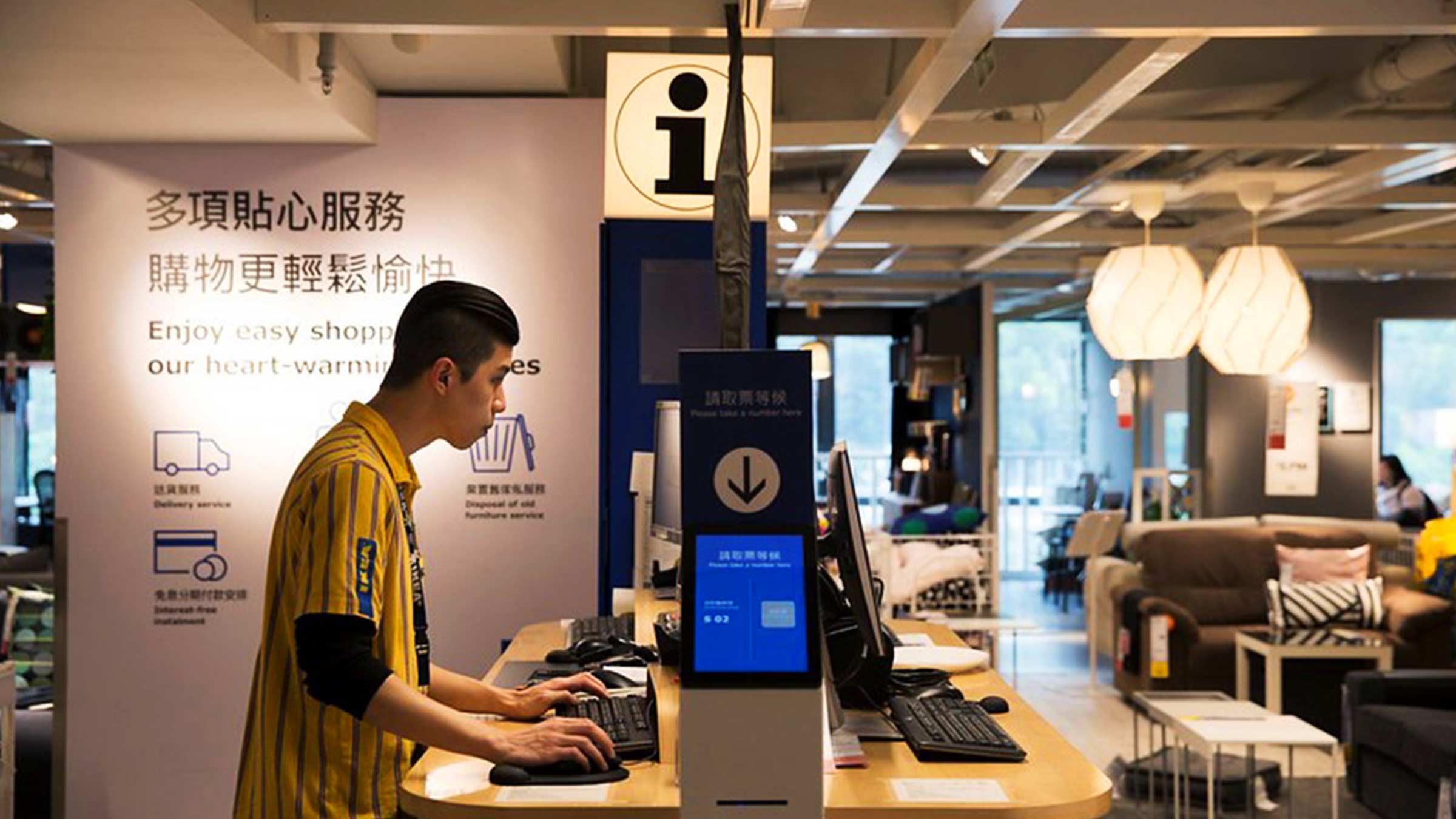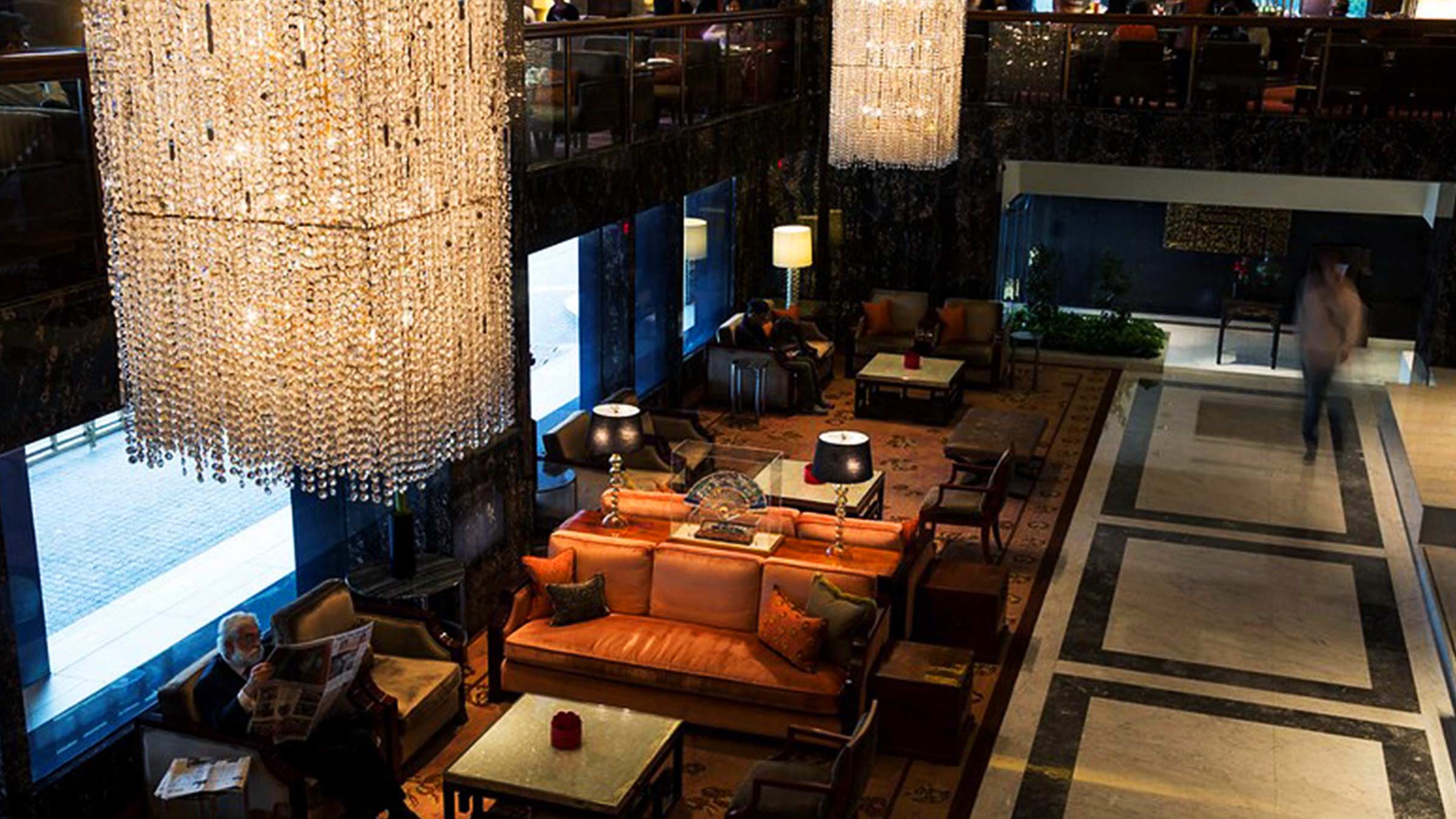Businesses across Asia have been engulfed in managing responses to Covid-19 since early January. Now, months after the initial lockdown period started in the region, there are undoubtedly lessons to be learnt from our peers in Asia – not only about how they guided their businesses through difficult and testing times, but also about how they are preparing to lead their organisations through a possible ‘Round 2’ of restrictions.
I was therefore delighted that John Nolan, the Group HR Director for Jardine Matheson, agreed to share some of his experiences with a group of HR Directors over an MBS webinar. Jardines, founded in 1832, is the 280th largest company in the world by revenue – $41bn pre-crisis. Headquartered in Hong Kong, Jardines has businesses split evenly across South East Asia and Greater China. As a group, it employs nearly 500,000 people in 50 countries across numerous sectors including food retail, automotive, health and beauty, restaurants, hotels – and many more. Its divisions include pan-Asian retailer Dairy Farm, with over 10,000 outlets, 230,000 employees and sales in excess of $21bn, luxury hotel group Mandarin Oriental and a significant property company.
Prior to joining Jardines, John worked for many years at Unilever, in various senior positions in global and operational roles, latterly as SVP HR for Global Markets, responsible for HR in all the country organisations within Unilever.
Our webinar discussion began with a reflection on the universality of this crisis. It is true that, in normal circumstances, multinational conglomerates which trade across multiple sectors and territories are protected from this sort of disruption. “I don’t think there’s a sector in the world that hasn’t been impacted by this,” John told us, “and as for Jardines, it has touched many parts of the business in some way.” Indeed, while Jardines has seen increased demand at its grocery businesses (this presenting its own challenges), its hospitality and property divisions are facing never-before-seen headwinds.
As Group HRD, John sits at the very heart of Jardines as the business navigates the uncertain waters. I wonder: in the midst of the crisis, what has been his key learning?
“My main takeaway from all of this is to always test your assumptions,” he told the listeners.
“Like every organisation, we had business continuity plans and a risk matrix which we would pour over in leadership meetings,” he explained. “Like everyone else, we thought we had covered all bases. But this crisis has made us realise that every single one of our plans was based on a certain set of assumptions – like that a problem would arise in one building, in one business, in one sector or in one country. Or else, our plans accounted for singular events: a fire, a terror attack. We never considered the possibility that all of our buildings would be inoperable or that there’d be a crisis across all of our industries and all countries!”
“My main takeaway from all of this is to always test your assumptions. We never considered the possibility that all of our buildings would be inoperable or that there’d be a crisis across all of our industries and all countries!”

“It’s the same with our overseas assignees… we had been operating on the assumption, probably like many others, that in the event of an international disaster or emergency situation we would be able to evacuate our people safely, usually to a neighboring country. Nobody could have imagined that more than 80 governments would have closed their borders in the space of a few days and that these options would not be available.”
John suggested that HRDs should: “Keep pushing yourself to ask: what if this happens? What if that happens? Because right now we’re operating in a world that we had very little preparation for.”
Jardines is now in the second phase of government restrictions to encourage social distancing, after residents returning to Hong Kong in mid-March resulted in a second wave of coronavirus cases. After parts of the businesses returned to work for a three-week period, most of the office staff are now working from home again. One of the HRDs on the webinar asked John how Jardines went about the practicalities of transitioning from home working to being back in the office.
“Firstly, make sure you run a lessons learnt session straight away,” John said. “Ask yourself: what worked, what didn’t work, what do you need to change? In the three-week period when we were back in the office, we were able to fix things that hadn’t quite worked during the first lockdown period. From technical IT issues and equipment shortages to how certain teams worked more broadly, we were able to make a number of adjustments which have meant that this second home working period is running more smoothly.”
“If the British Prime Minister and the Health Secretary can get ill at the same time, then we shouldn’t assume CEOs and FDs of companies are any different!”
He also warned on the importance of looking after senior members of staff during any back-to-work period. “If the British Prime Minister and the Health Secretary can get ill at the same time, then we shouldn’t assume CEOs and FDs of companies are any different!” John suggested a number of measures to make sure that key members of senior teams don’t get ill at the same time: alternating work from home days, working alternate weeks in the office, opting for digital communication, moving certain team members to a different location. “Everyone is keen to get back to work, and to lead from the front visibly. But you have to ask: is this the safest, or indeed, right thing to do?”
Most powerfully, John told HR Directors to lead with empathy – both in a back-to-work scenario and during the lockdown periods. “Think really carefully about your re-entry to the office,” he said. “We undertook a phased re-entry, bringing people back slowly and gradually. A lot of people found lockdown incredibly traumatic, and being mindful of this is vital. Allowing employees to come back when they’re ready and giving them a variety of options about how to come back is key.”
Alongside this, John told us that Jardines introduced a range of measures during the period to ensure colleagues felt safe returning to work. From installing temperature scanners at the entrance to its buildings to limiting the number of people in the office at one time, the business aimed to make sure its offices were safe places to be. “We also had to operate with a far greater level of flexibility. With schools still closed, our workforce needed us to reconsider working hours and how teams operated on any given day. We gave people the opportunity to come back when they were ready.”
As such, Jardines allowed its employees to continue working from home if they wanted – or to come into the office for just half a day initially. “We wanted people to come back on their own terms, when they felt ready, and be confident to do so”. John eloquently describes this way of working as the ‘new normal’.
“We identified that mental health had to be on our radar from day one.”
Indeed, John told us that ensuring Jardines remains empathetic to its staff is one of the key parts of his role as HR Director during the crisis. “We identified that mental health had to be on our radar from day one,” John said, “and tried to make additional services available to our people, offering them greater levels of support and allowing them to talk about how they’re feeling. When the restrictions were lifted, people were scared to come back to the offices – every day you hear of a case in the building next door, or in the restaurant in the building – so providing additional support to our teams during this period was absolutely key”. This additional support has not only been delivered through traditional channels, but also through innovative digital platforms and online self-help resources.
I ask John how he balances these long-term people considerations with short-term matters of survival during the crisis. After all, businesses across the consumer sectors globally are being forced to lay-off of large numbers of employees to preserve cash and stay afloat.
Above all, John advised companies to do whatever is right for the individual business. “None of us are facing exactly the same set of circumstances, we all have different challenges to overcome throughout this crisis.”
But, he said, “it’s important to remember that there will be a tomorrow. We will come out of this and so you have to be guided by a set of principles that say: ‘when I come out of this, is this going to help us be stronger?’ It is not possible in all of our businesses, but in the ones where it is, we have tried every means of reducing costs without laying people off – because we know that when we come out the other side, we will need to be stronger than ever.

“We do also keep reminding our businesses that we have a responsibility to the communities which we operate within. We must act as responsibly as we can, and we have been urging our businesses to see what they can do before laying people off. We think that, in the end, long-term thinking will put us in a better place when all of this comes to an end. Adjust your cost base for now, but also think about tomorrow.”
Indeed, John outlined a number of measures that Jardines had taken during the lockdown to train workers through significantly upscaling access to online training. “Every cloud has a silver lining. Let’s use this time when we’re at home to really invest in our people through online learning – and get ahead of the curve. This situation may help to break any resistance we might have had as a Group to use digital learning tools – and also, training workers in topics like digital skills was always going to be a win-win. Going forward, this training will mean more of our teams are ready to lead our digital transformation across the Group. This will hopefully give us an uplift in our overall skills and capabilities base as a Group so we come out the other side stronger”.
I ask John what he would have done differently, with the benefit of hindsight. “I think when this is all over, we will say to ourselves ‘we should have done some things faster’. There are things that could have been done by both businesses and governments… alarms should have been rung faster than they were.” He also touched upon the group mentality that exists in leadership teams, that can often lead to businesses not facing up to certain issues early enough. “There can be a tendency to say: that’s happening over there but it won’t happen to us.”
As a final question, another HRD asked if Jardines had increased its corporate responsibility activity, as we have seen many businesses do in the UK. “We have,” said John “by leveraging our health and beauty business, for example, we were able to donate crucial medical supplies such as face masks and hand sanitisers to healthcare services, firstly in Wuhan and then in other key markets.” Longer term, John outlined how they were looking across their businesses to see how they could best use their Group resources to meet the ongoing challenges of Covid-19 – both in the communities they serve, and also the healthcare providers on the front line.
John rounded off the webinar on a positive note – explaining how some of their businesses in China were, slowly, starting to return to normal: “The China lockdown appears to have been successful. Many of our businesses in China are now back to work, and things are starting to recover. We’re not yet back to where we were in terms of volume – but we are starting to see a come-back. People are back on the streets, back in the shopping malls. There is still an anxiety in the population (which in particular hits the restaurant and hospitality sectors, where there are large groups of people), but there is a way forward.”
It was a privilege to hear John share his experiences of the current situation, and invaluable to hear first-hand the insights he shared about the types of challenges we might need to address as we, eventually, emerge from lockdown in Europe. In summary John concludes: “It is important that you plan fully for a return after phase one, but also critically that you are planning for a phase two – and possibly a phase three – of restrictions.”








